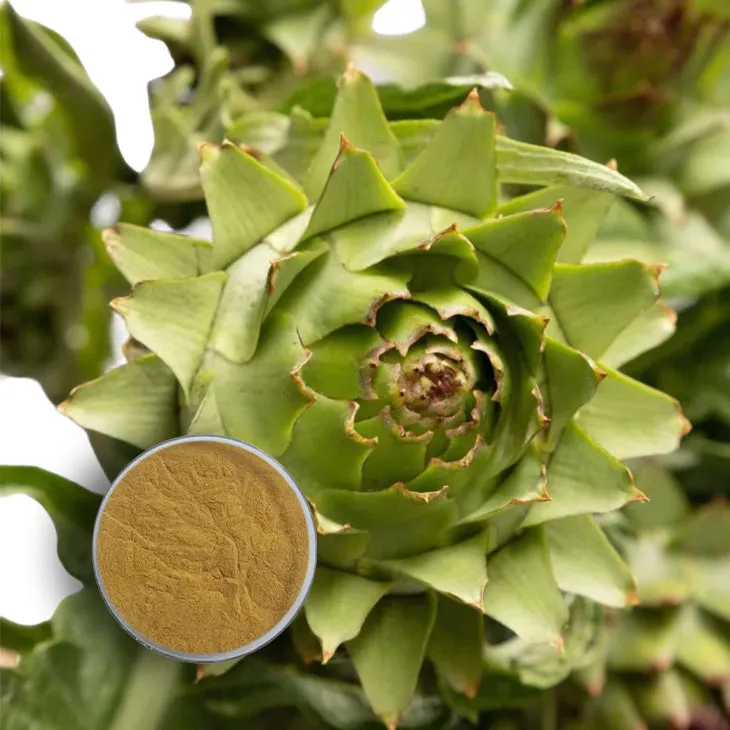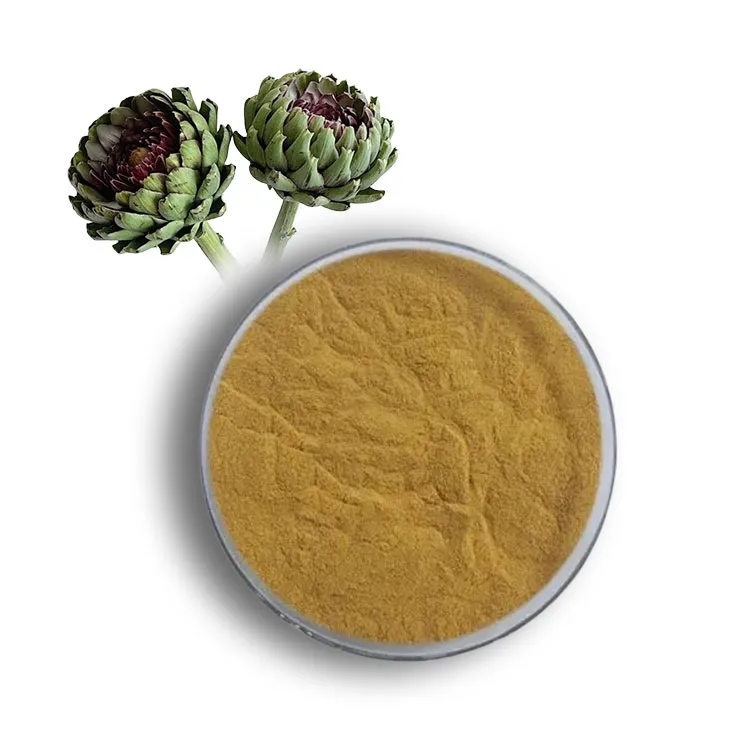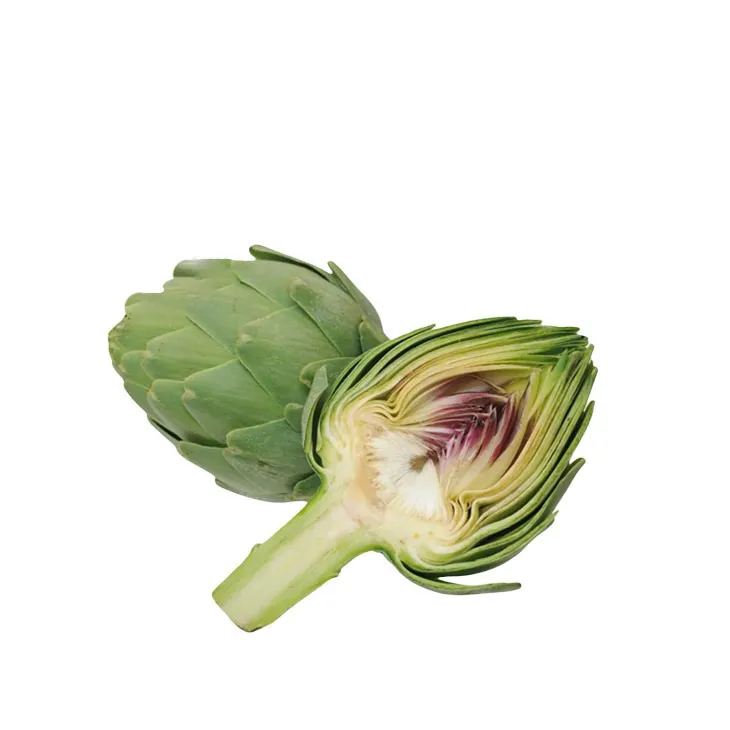- 0086-571-85302990
- sales@greenskybio.com
Artichoke Leaf Extract: The Herbal Product Trend You Should Know.
2024-12-20

1. Introduction
In recent years, the health and wellness industry has witnessed a remarkable surge in the popularity of herbal products. Among these, Artichoke Leaf Extract has emerged as a notable trend. This extract, derived from the leaves of the artichoke plant (Cynara scolymus), has a long history of use in traditional medicine. However, it is now gaining newfound attention in modern health contexts.

2. The Source: The Artichoke Plant
The artichoke plant is a thistle - like perennial plant native to the Mediterranean region. It has large, spiny leaves and a distinctive flower head that is also consumed as a vegetable. The leaves of the artichoke are the source of the extract that is becoming so popular. These leaves are rich in a variety of bioactive compounds, which contribute to the numerous health benefits associated with the extract.

3. Digestive Health Benefits
3.1. Improved Digestion
One of the most well - known benefits of Artichoke Leaf Extract is its positive impact on digestion. The extract contains compounds such as cynarin and chlorogenic acid, which are thought to stimulate the production of bile in the liver. Bile is essential for the breakdown and absorption of fats in the small intestine. By increasing bile production, Artichoke Leaf Extract can help improve the overall digestive process, especially for those who have difficulty digesting fatty foods.
3.2. Relief from Digestive Disorders
Artichoke leaf extract has also shown promise in relieving various digestive disorders. It may be beneficial for individuals with indigestion, bloating, and abdominal pain. Some studies suggest that it can help relax the smooth muscles in the gastrointestinal tract, reducing spasms and discomfort. Additionally, it may have a prebiotic - like effect, promoting the growth of beneficial gut bacteria, which are crucial for a healthy digestive system.
- Studies have indicated that artichoke leaf extract can improve symptoms in patients with irritable bowel syndrome (IBS).
- It may also be helpful for those with functional dyspepsia, a common disorder characterized by upper abdominal pain and discomfort.

4. Antioxidant Properties
Artichoke leaf extract is a rich source of antioxidants. Antioxidants play a vital role in protecting the body against oxidative stress, which is caused by an imbalance between free radicals and the body's antioxidant defenses. Free radicals are highly reactive molecules that can damage cells, proteins, and DNA. The antioxidants in artichoke leaf extract, including flavonoids and phenolic acids, can neutralize these free radicals, reducing the risk of various diseases.
4.1. Heart Health
Oxidative stress is a major contributor to heart disease. By reducing oxidative stress, artichoke leaf extract may help protect the heart. It can potentially lower blood pressure, reduce inflammation in the blood vessels, and improve lipid profiles. Some research has shown that it may help lower LDL ( "bad" ) cholesterol levels while increasing HDL ( "good" ) cholesterol levels, which is beneficial for cardiovascular health.
4.2. Anti - Aging Effects
On a more cosmetic level, the antioxidant properties of artichoke leaf extract may also contribute to anti - aging effects. Free radical damage is closely associated with the aging process, particularly in the skin. By neutralizing free radicals, the extract can help prevent premature aging of the skin, such as the formation of wrinkles and loss of elasticity. It may also have a role in protecting other organs from age - related damage.
5. Other Potential Health Benefits
5.1. Liver Health
Given its role in stimulating bile production, artichoke leaf extract is also considered beneficial for liver health. It can help the liver detoxify harmful substances more efficiently. Some studies have suggested that it may protect the liver from damage caused by toxins, such as alcohol and certain drugs. It may also be useful in managing liver diseases, although more research is needed in this area.
5.2. Blood Sugar Regulation
There is some evidence to suggest that artichoke leaf extract may play a role in blood sugar regulation. It may improve insulin sensitivity, which is crucial for maintaining normal blood sugar levels. For individuals with diabetes or at risk of developing diabetes, this could potentially be an important benefit. However, further research is required to fully understand the mechanisms and effectiveness in this regard.
6. Incorporating Artichoke Leaf Extract into Your Routine
6.1. Forms of Artichoke Leaf Extract
Artichoke leaf extract is available in various forms. One of the most common forms is as a dietary supplement, which can be found in capsules, tablets, or liquid extracts. It can also be consumed as a tea, made by steeping dried artichoke leaves in hot water. Additionally, some food products may be fortified with artichoke leaf extract, although these are less common.
6.2. Dosage and Precautions
When considering incorporating artichoke leaf extract into your routine, it is important to be aware of the appropriate dosage. The recommended dosage can vary depending on the form of the extract and the intended use. However, generally, for dietary supplements, it is advisable to follow the instructions on the product label. As with any herbal product, there are also some precautions to keep in mind.
- Some people may experience mild side effects such as gastrointestinal discomfort, gas, or diarrhea when taking artichoke leaf extract. If these symptoms occur, it may be necessary to reduce the dosage or discontinue use.
- Artichoke leaf extract may interact with certain medications, especially those that are metabolized by the liver. It is important to consult a healthcare provider if you are taking any medications, especially blood thinners, diabetes medications, or medications for liver disease.
7. Conclusion
Artichoke leaf extract is a promising herbal product with a wide range of potential health benefits. From its positive effects on digestion and antioxidant properties to its potential benefits for liver health and blood sugar regulation, it is no wonder that it is becoming a popular trend in the health and wellness industry. However, as with any herbal remedy, it is important to approach it with caution. By understanding its benefits, forms, and precautions, consumers can make informed decisions about whether and how to incorporate artichoke leaf extract into their daily routines.
FAQ:
What are the main benefits of artichoke leaf extract?
Artichoke leaf extract has several potential benefits. It may have a positive impact on digestion by helping to stimulate the production of bile, which can aid in the breakdown and absorption of fats. It also has antioxidant properties that can help protect the body's cells from damage caused by free radicals. Additionally, it may have anti - inflammatory effects and could potentially contribute to overall heart health.
How does artichoke leaf extract affect digestion?
Artichoke leaf extract can affect digestion in multiple ways. As mentioned, it stimulates bile production in the liver. Bile is then released into the small intestine, where it emulsifies fats, making them easier to digest and absorb. It may also help to increase the movement of the digestive tract, which can prevent constipation and improve overall digestive function.
What are the antioxidant properties of artichoke leaf extract?
The antioxidant properties of artichoke leaf extract are due to the presence of various compounds such as phenolic acids and flavonoids. These antioxidants work by neutralizing free radicals in the body. Free radicals are unstable molecules that can cause damage to cells, DNA, and proteins. By scavenging these free radicals, artichoke leaf extract helps to reduce oxidative stress and may contribute to preventing various diseases associated with oxidative damage, such as certain cancers and heart diseases.
Is artichoke leaf extract safe for everyone?
While artichoke leaf extract is generally considered safe for most people when taken in appropriate amounts, there are some exceptions. People with allergies to artichokes should obviously avoid it. Also, it may interact with certain medications, such as those used to lower blood sugar or blood pressure. Pregnant and breastfeeding women should consult their healthcare providers before taking artichoke leaf extract as there is not enough research to determine its absolute safety in these situations.
How can consumers incorporate artichoke leaf extract into their daily routines?
Consumers can incorporate artichoke leaf extract into their daily routines in several ways. It is available in supplement form, such as capsules or tablets, which can be taken according to the recommended dosage on the product label. Some herbal teas also contain artichoke leaf extract, which can be a pleasant way to consume it. However, it's important to start with a small amount and monitor for any potential side effects.
Related literature
- The Health Benefits of Artichoke Leaf Extract: A Review"
- "Artichoke Leaf Extract: Composition, Pharmacological Properties, and Therapeutic Applications"
- "Antioxidant and Digestive - Enhancing Effects of Artichoke Leaf Extract"
- ▶ Hesperidin
- ▶ citrus bioflavonoids
- ▶ plant extract
- ▶ lycopene
- ▶ Diosmin
- ▶ Grape seed extract
- ▶ Sea buckthorn Juice Powder
- ▶ Beetroot powder
- ▶ Hops Extract
- ▶ Artichoke Extract
- ▶ Reishi mushroom extract
- ▶ Astaxanthin
- ▶ Green Tea Extract
- ▶ Curcumin Extract
- ▶ Horse Chestnut Extract
- ▶ Other Problems
- ▶ Boswellia Serrata Extract
- ▶ Resveratrol Extract
- ▶ Marigold Extract
- ▶ Grape Leaf Extract
- ▶ blog3
- ▶ blog4
- ▶ blog5
-
Pure 85% Tomentil Extract.
2024-12-20
-
Senna Leaf Extract
2024-12-20
-
Garcinia Cambogia Extract
2024-12-20
-
Coix Seed Extract
2024-12-20
-
Saw Palmetto Extract
2024-12-20
-
Rose Hip Extract
2024-12-20
-
Lycopene
2024-12-20
-
Saffron Extract Powder
2024-12-20
-
Acerola Extract
2024-12-20
-
Alisma Extract
2024-12-20
-
Licorice Root Extract Powder
2024-12-20





















